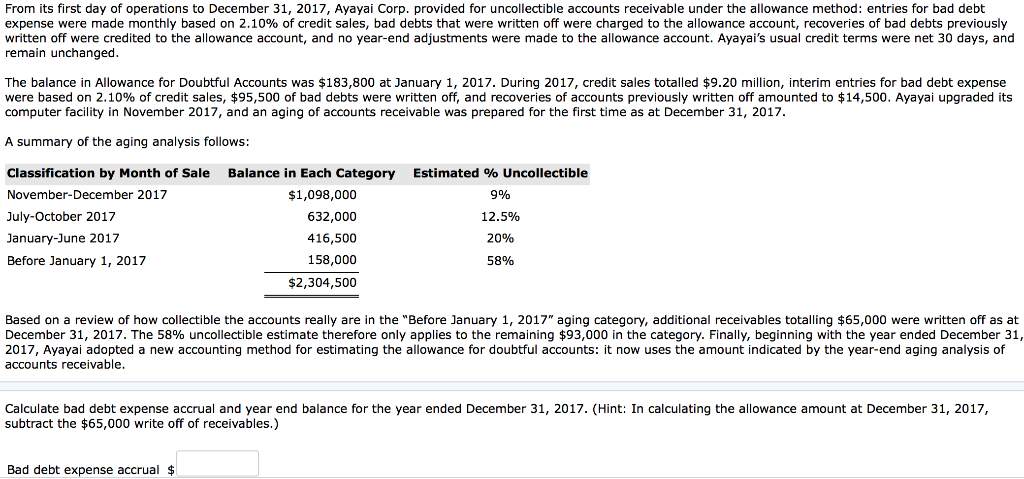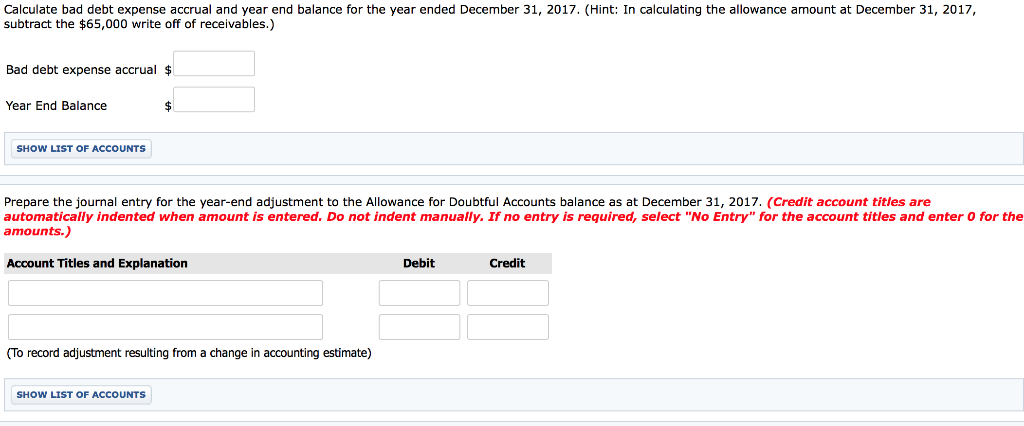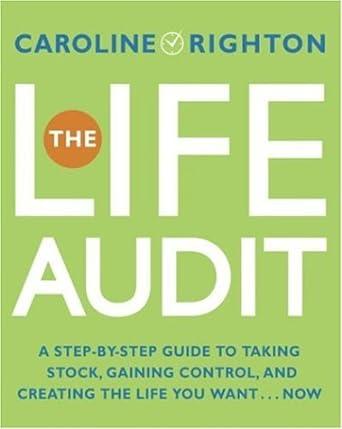

From its first day of operations to December 31, 2017, Ayayai Corp. provided for uncollectible accounts receivable under the allowance method: entries for bad debt expense were made monthly based on 2.10% of credit sales, bad debts that were written off were charged to the allowance account, recoveries of bad debts previously written off were credited to the allowance account, and no year-end adjustments were made to the allowance account. Ayayai's usual credit terms were net 30 days, and remain unchanged The balance in Allowance for Doubtful Accounts was $183,800 at January 1, 2017. During 2017, credit sales totaled $9.20 million, interim entries for bad debt expense were based on 2.10% of credit sales,95,500 of bad debts were written off, and recoveries of accounts previously written off amounted to $14,500. Ayayal upgraded its computer facility in November 2017, and an aging of accounts receivable was prepared for the first time as at December 31, 2017 A summary of the aging analysis follows: Classification by Month of Sale Balance in Each Category Estimated % Uncollectible $1,098,000 632,000 416,500 158,000 $2,304,500 November-December 2017 9% 12.5% 2090 58% July-October 2017 January-June 2017 Before January 1, 201:7 Based on a review of how collectible the accounts really are in the "Before January 1, 2017" aging category, additional receivables totalling $65,000 were written off as at December 31, 2017. The 58% uncollectible estimate therefore only applies to the remaining $93,000 in the category. Finally, beginning with the year ended December 31, 2017, Ayayai adopted a new accounting method for estimating the allowance for doubtful accounts: it now uses the amount indicated by the year-end aging analysis of accounts receivable Calculate bad debt expense accrual and year end balance for the year ended December 31, 2017. (Hint: In calculating the allowance amount at December 31, 2017, subtract the $65,000 write off of receivables.) Bad debt expense accrual $ Calculate bad debt expense accrual and year end balance for the year ended December 31, 2017. (Hint: In calculating the allowance amount at December 31, 2017, subtract the $65,000 write off of receivables.) Bad debt expense accrual $ Year End Balance SHOW LIST OF ACCOUNTS Prepare the journal entry for the year-end adjustment to the Allowance for Doubtful Accounts balance as at December 31, 2017. (Credit account titles are automatically indented when amount is entered. Do not indent manually. If no entry is required, select "No Entry" for the account titles and enter 0 for the amounts.) Account Titles and Explanation Debit Credit (To record adjustment resulting from a change in accounting estimate) SHOW LIST OF ACCOUNTS








